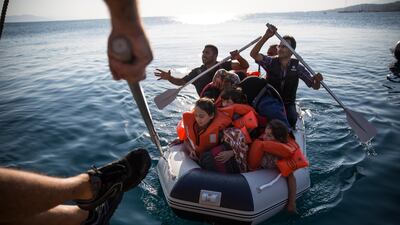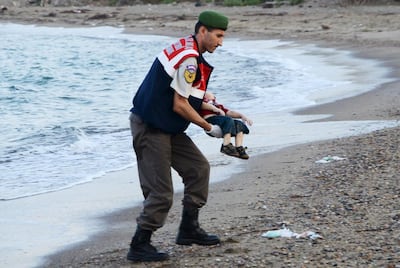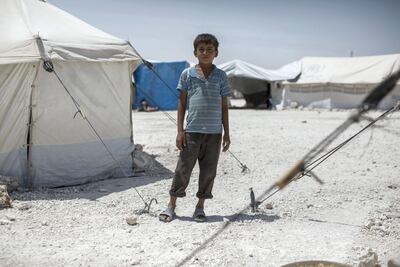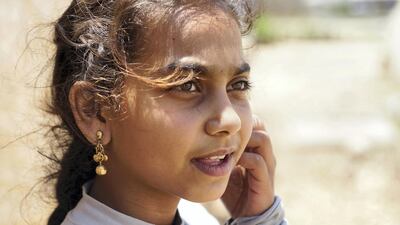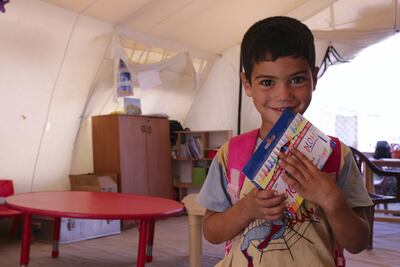On September 2, 2015 the world was shocked by the pitiful image of a little boy in a red T-shirt lying face down in the sand on a Turkish beach. Soon, the world learned all about him. His name was Aylan Kurdi, he was from Syria but of Kurdish ethnicity and he was only three when he met his death in the Mediterranean.
Along with his mother, Rehana, and his five-year-old brother Galip, five, Aylan drowned after the boat smuggling them into Europe took on water and capsized.
Desperate to escape the war in Syria, his family undertook a risky journey that has cost the lives of many migrants. The toddler’s lonely death moved millions and caused an international outcry. Aylan Kurdi became a symbol of Syria’s crisis.
Today, the world is still witnessing families and children drowning in their attempts to reach safety. This year, approximately 121,517 migrants and refugees have entered Europe by sea while 2,410 have died crossing the Mediterranean, according to the International Organization for Migration (IOM).
Worldwide, about 23,000 migrant fatalities have been recorded since 2014. Of those, 14,500 were recorded in the Mediterranean. It is considered to be the deadliest migration route. Overall, 60,000 deaths on migration routes have been recorded in the last twenty years, the IOM said. That figure of course does not include the unreported deaths and disappearances. In many regions of the world, migrants’ bodies are never found, and many more may never be identified.
_______________
Read more:
End Syria's bloodshed, says father of dead toddler Alan Kurdi
Raqqa children tormented by beheadings and bombs, charity says
Syria schools replace playgrounds with vegetable gardens to feed hungry children
_______________
The outcry over Aylan’s death has done little to improve the situation of children. In many refugee-hosting countries, children are being forced into early marriages and into trading their childhoods for jobs to pay basic household living expenses.
“Seven years of conflict sees a lot of families being pushed around, moving from one area to another, most children are forced in to child marriages and young boys are now joining the army,” Sonia Khush, Syria’s director for Save the Children, said. Though the ceasefires in Syria have lessened the bombings, the education and mental well-being remain a great concern, she added.
“Some children grow up without education. This is a great concern for us, as we question what could it mean for the future of the next Syrian generation? A lot of families are displaced within Syria or are constantly moving. This means their children cannot get access to an education or even go to school. Also most of the schools within Syria have been either bombed or used by armed groups."
Children escaping Raqqa in Syria have been "tormented" by years of living under ISIL's rule culminating in a ferocious bombing campaign on the city. Save the Children warns it could take decades for young people to overcome their psychological wounds.
“Raqqa's children might look normal on the outside but inside many are tormented by what they've seen,” Ms Khush said.
Along with poor living conditions and displacement, the collapse of most health care has taken a heavy toll on the health of children.
Doctors without Borders, also known as Medecins Sans Frontieres (MSF), say children have died of easy-to-treat diseases because they were not vaccinated.
MSF is currently the sole provider of routine immunisations (EPI) in different parts of northern Syria. In the Raqqa governorate, teams are vaccinating almost 100 children per day.
In the MSF burn unit in Atmeh, in Idlib province, more than 150 children under the age of 15 had surgery between January and July, which represents more than one third of the total operations perfomed in that period. The majority of the burn cases are a result of poor housing and bad quality of fuel used for cooking or heating - and also violence.
Life of children in Syria
The flight from ISIL-controlled Raqqa in Syria had a terrible impact on Mr Aoun's five children.
Mr Aoun (his name has been changed for security reasons) and his family fled Raqqa three months ago after the house opposite theirs was bombed. He told Save The Children, "There is nothing called ‘children’ anymore. We are all in a living hell now. Children have forgotten about their childhood."
Children who wanted to go to school were taught only how to fight and the basics of Islam. There was no actual education, he said.
“When we used to walk in the market, there used to be people who had been beheaded and their bodies would be hanging without their heads. Imagine a child seeing a body that is hung without its head, what would his reaction be?”
Mr Aoun’s daughter Raashida, 13, said living under ISIL had made children aggressive. "They haven’t seen much of life except for war and depression. If a child wants to play a game, there is none.
"It’s as if they are not children. They see ISIL beheading people right next to them, they would present the bodies without a head in front of the children. Children started to dream about this and wouldn’t be able to sleep. They haven’t had a childhood at all, just aeroplanes coming and aeroplanes going. It affected them in all ways, their lives have passed them by, they haven’t experienced childhood, they didn’t see toys, parks, they only sit at home terrified of ISIL”.
Eight-year-old Jasmine and her elder sister Dalal are from Hama. They left Syria three years ago and are now living in a refugee host community in Jordan.
Their father, Hnadi, tries to make life better for them each day. "I just want to give them everything they want. They should be children and enjoy their childhood," he said.
The UN has called for a pause in the fighting in Syria to allow remaining civilians to leave. But even with safe routes, Save the Children said leaving the conflict was only the first step on the long road back to mental well-being.
"It's crucial that the children who've made it out alive are provided with psychological support to help them deal with the trauma of witnessing senseless violence and brutality," said Ms Khush. "Unless their mental health needs are addressed, we risk condemning a generation of children to a lifetime of suffering."
_______________
Meet some of the children of Syria's war:
Yacoub
Yacoub (whose name has been changed to protect his identity), his nine siblings, and their parents came under ISIL sniper fire as they made the perilous journey out of Raqqa three months ago.
The 12-year-old was unable to go to school after ISIL occupied Raqqa as his parents feared it might be hit in an airstrike.
Yacoub and his siblings described ISIL punishments such as stonings, cutting off smokers' fingers and sewing mouths shut.
"They filled the roundabout with heads that had been cut off. We saw them doing it, and cutting off hands," Yaacoub said.
His younger brother Fuad, two, was wounded in an air strike.
"We were sleeping, the summer and suddenly a plane dropped a bomb and we saw him screaming. And there was a shrapnel in his head."
_______________
Aryam
Feryal, a Syrian mother of four, is only concerned about the safety and protection of her youngest daughter, 10-year-old Aryam.
The family had to flee Daraa and start a new life in a tent in Lebanon where “everyone was a stranger and none of the faces were familiar for Aryam who feared that everyone died”, Feryal said. Aryam's fears turned into aggressiveness, she expressed herself with a loud voice and never showed excitement about any activity.
“My daughter is difficult, and life in the settlement is to blame for this," Feryal said.
She enrolled her daughter in World Vision's psycho-social support programme, where vulnerable children attend sessions with trained animators and receive emotional support needed through a variety of activities.
Ayram was finally excited about certain activities, like drawing and coloring. However, the mature 10-year-old believes that the most valuable lesson was “learning when to say no”.
Her mother knows that, for a couple of hours during the day, her daughter is safe and enjoying a protected childhood within the walls of a colorful classroom.
_______________
Kheir
School, for five-year-old Kheir is a getaway where he can enjoy his childhood and escape the unfairness of the world. When kids his age were crying to skip school, the Syrian refugee was begging his mother to let him attend classes.
Having left Aleppo in 2011, he was gathering plastic and nylon on the streets of Lebanon and selling them in order to support his family as his father remarried and left them.
“He’s the only one in the family who stands the chance of having a good future. All our hopes are pinned on Kheir”, said his mother, Souraya, 37.
None of Kheir’s eight older siblings had the chance of going to school, neither in Syria nor in Lebanon.
World Vision’s “Early Children Education” programme targets children from three to six years and is based on activities that develop children’s skills through a curriculum.
The classes take place in seven different informal settlements in the Bekaa area. His older brothers had to continue gathering plastic from the areas surrounding the settlement and sell them, so that the family could survive.
“Kheir stopped being violent with other children. He cares more about his personal hygiene and nothing makes him happier than getting good feedback from his teachers," said Souraya.
The best moment for him was receiving new colouring books and pencils. His shining eyes were a mirror of his eagerness to gain knowledge.
“The school is like a sanctuary to him and I encourage that” said Souraya.
